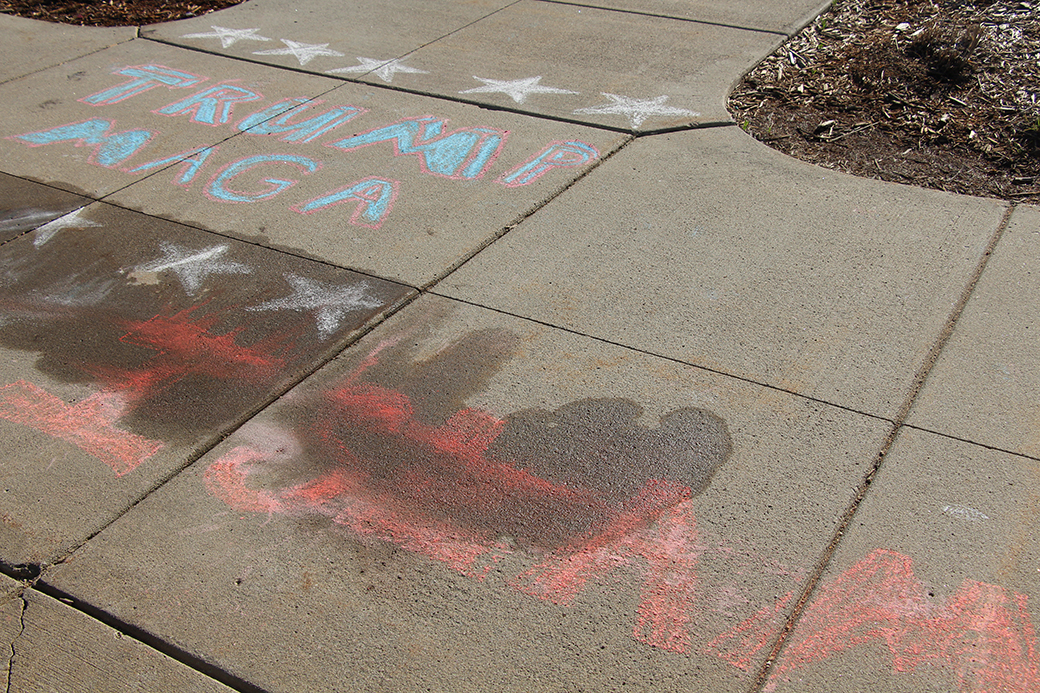
Sidewalk chalk messages trigger varying emotions
Chalk messages supporting presidential candidate Donald Trump appeared on campus this past Friday, urging students to “build the wall” and to “#StopIslam.”
In October, a spike in chalk messages sparked a discussion between USD administrators and Student Government Association senators on whether or not a policy limiting chalking on sidewalks should be implemented.
In the most recent round of chalks messages, though, no discussions are planned.
Michelle Novak, SGA vice president, said the messages have a negative impact on Hispanic and Muslim students at USD.
“We definitely think that USD should be a safe space for our diverse students, and these messages that Donald Trump supporters are putting out there are definitely not the most inclusive,” she said.
However, Novak also said students should be free to voice their opinions and be exposed to the opinions of others — even if they don’t always agree with them.
“When you come to college, you should be expected to see those different viewpoints, and we don’t want to stifle anyone’s voice, even if they are a Donald Trump supporter,” she said.
Kade Lamberty, a Donald Trump supporter and the president of the College Republicans, said he doesn’t know who wrote the chalk messages on campus, but can understand the sentiment behind them.
“I think a lot of people, especially on college campuses, are really afraid to be a vocal Trump supporter just because their friends or people from their peer groups will think they’re racist or bigoted,” he said.
While Lamberty said he agrees with the “build the wall message,” he doesn’t think the “stop Islam” message was appropriate. However, he said he believes people are frustrated by the fact that they can’t criticize “radical Islam,” which may have led to the messages.
“I think a lot of people see these attacks on Brussels, Paris and San Bernardino, but basically you can’t criticize the religion of the perpetrators who did it,” he said. “Obviously, 99 percent of Muslims are peaceful, but at the same time if you can’t criticize one of the things that bring these attacks together — people are getting very frustrated with that.”
A sidewalk chalk policy, or something limiting chalk messages might be a solution to “hurtful” messages, but if implemented should be balanced with students’ rights to freedom of speech, said Lena Tran, the intercultural program coordinator for Student Services.
“To see the sidewalk chalk regarding build the wall and stop Islam is heartbreaking and really brings attention to the negative impact that can affect students from some of these marginalized communities,” she said.
The messages aren’t getting to Shamly Mackey, president of the Muslim Students Association. Makey, who’s originally from Sri Lanka, said the people who wrote the messages simply need to meet a Muslim.
“The moment we take that (the messages) to heart — it just stops us from doing our daily work,” he said.


